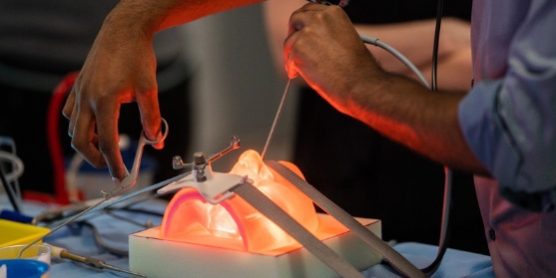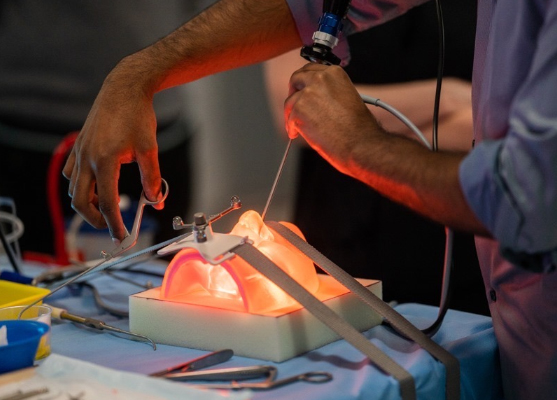3D print tech transforming healthcare
Robotic surgery, bionic limbs and 3D printed organs; as we hurtle into the next decade, the lines between engineering and medical science are blurring.
Fusetec – an Adelaide-based startup – is leading research in this sector and revolutionising healthcare by printing Australia’s first 3D simulations of human body parts.
Aiming to develop prototypes of the human thorax for medical training, Fusetec welcomed the expertise of RMIT PhD student Jiawei Ma through an internship facilitated by APR.Intern and supported by IMCRC. In his final year of candidature, Jiawei’s academic background in biomedical engineering made him the perfect match for Fusetec’s life-saving research.
Mentored by RMIT School of Engineering’s Professor Jiyuan Tu, Jiawei was able to master new software that enhanced his digital reconstruction skills. He generated four realistic segmented thoracic models including rib cage, organs and tissue, of which the heart was 3D printed.
“Working with state-of-the-art industry software was an invaluable opportunity to see the application of my studies first-hand. The internship was also a great environment to develop soft skills such as teamwork, presentation and communication skills,” Jiawei said.
“Jiawei improved methods for achieving high-fidelity 3D models. This will allow team members to replicate his approach and cut-down timeframes on other projects,” said Jiawei’s industry supervisor, Fusetec Anatomical Specialist Dr. Jacob Ross PhD MD.
Following the internship’s success, Jiawei was employed by Fusetec in a newly created role, empowering him to continue solving real-life medical industry challenges.

